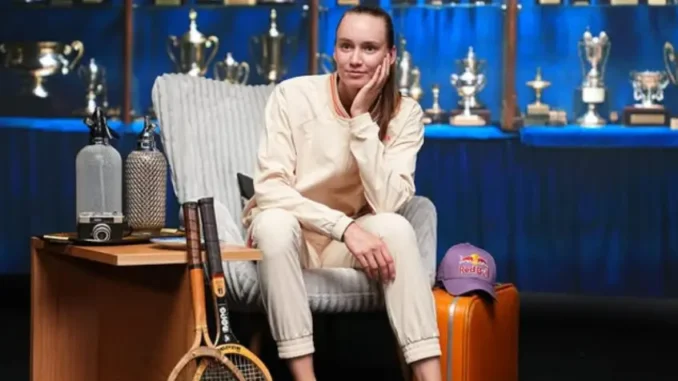
As the clay season unfurls its dusty red carpet across the tennis world in April 2025, Elena Rybakina, Kazakhstan’s towering tennis titan, finds herself at a crossroads of reflection and ambition. The 25-year-old, who claimed Wimbledon glory in 2022 and has since solidified her status as a top-tier talent with a career-high ranking of world No. 3, is not just focused on her next forehand winner or Grand Slam title. Instead, she’s peering into a future beyond the baseline, hinting at a potential second act in the sport she’s dominated with her thunderous serve and cool-headed precision. In a candid moment during a press conference ahead of the Madrid Open, Rybakina revealed she’s open to the idea of one day trading her racket for a clipboard, stepping into the role of a coach.
The notion of Rybakina as a mentor isn’t as far-fetched as it might seem. Born in Moscow and now proudly representing Kazakhstan, she’s already etched her name into tennis lore with a game that blends power and poise. Her 2022 Wimbledon triumph over Ons Jabeur—6-3, 6-2 in a final that showcased her ability to thrive under pressure—marked her as the first Kazakhstani to win a Grand Slam singles title. Since then, she’s added titles in Indian Wells (2023) and Brisbane (2024), proving her versatility across surfaces. Yet, it’s her recent musings about coaching that have sparked intrigue among fans and analysts alike. “I think it could be interesting,” she said with a thoughtful smile, her words carrying the weight of someone who’s spent years dissecting the game. “I’ve learned so much from my own coaches, and maybe one day I could share that with someone else.”
Rybakina’s journey to this point has been anything but conventional. Switching allegiance from Russia to Kazakhstan in 2018, she tapped into the support of a nation eager to see its flag rise in the tennis ranks. That decision paid dividends, propelling her from a promising junior—once ranked No. 3 in the world—to a global star. Her 2025 season, though yet to yield a title, has been a testament to her resilience. A quarterfinal run at the Australian Open, followed by strong showings in Dubai and Miami, have kept her in the top 10, even as she navigates a coaching carousel that’s seen her part ways with Goran Ivanisevic and reunite briefly with Stefano Vukov before settling with Davide Sanguinetti. “Tennis teaches you a lot—patience, strategy, how to handle pressure,” she reflected. “Those are things I could pass on.”
Imagine Rybakina on the sidelines, her piercing gaze fixed on a young player’s footwork, her voice cutting through the din of a practice court. It’s a vision she doesn’t dismiss. Her own career has been shaped by mentors who’ve honed her raw talent into a polished weapon—Vukov, who guided her to Wimbledon, and Ivanisevic, the Croatian legend whose brief stint with her in early 2025 aimed to sharpen her already formidable serve. “I’ve had coaches who pushed me in different ways,” she noted, hinting at the lessons she’s absorbed. “Some were tough, some were more about technique. I think I’d try to find a balance—push them, but also let them grow into their own game.”
The idea of Rybakina coaching carries a special resonance in Kazakhstan, where her success has inspired a burgeoning tennis movement. The nation’s federation has poured resources into the sport, and Rybakina’s achievements—coupled with her understated charisma—have made her a role model for a new generation. “It’s nice to see kids picking up rackets because of what I’ve done,” she admitted, her typically reserved demeanor softening. “If I could help one of them reach their potential, that would mean a lot.” Her words suggest a future where she might return to the courts not as a competitor, but as a guide, perhaps nurturing the next Kazakhstani star to challenge the likes of Iga Swiatek or Aryna Sabalenka.
For now, though, Rybakina’s focus remains on the present—racking up wins, chasing titles, and silencing doubters. Her 2025 clay campaign kicks off in Madrid, a tournament she’s yet to conquer, and with the French Open on the horizon, she’s determined to add a Roland Garros crown to her resume. Yet, the coaching question lingers, a tantalizing “what if” for a player still in her prime. “I’m not thinking about it too much right now,” she clarified, ever the pragmatist. “But one day, when I’m done playing, it’s something I’d consider. I love this sport, and I’d like to stay connected to it.” As she prepares to unleash her signature power against the world’s best, the tennis faithful can’t help but wonder: could the woman who conquered Wimbledon one day shape the champions of tomorrow?
Leave a Reply